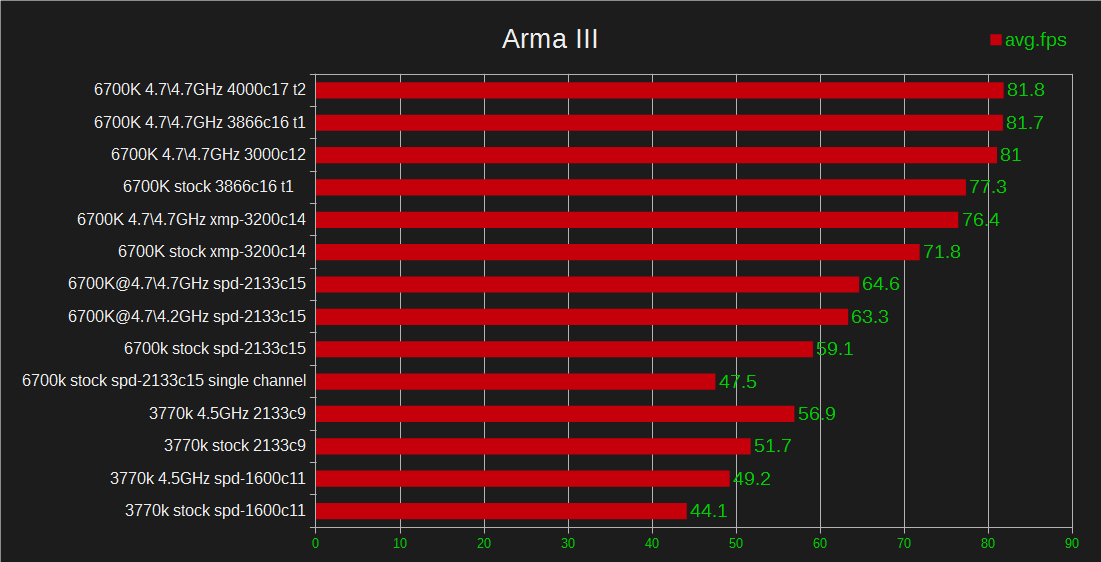8350rocks
Distinguished
gamerk316 :
8350rocks :
What about the 250ms hang in frame times from the 7700K that his graph showed? The 5960X also experienced a hang that was 180ms.
Considering that Ryzen never broke 30ms gap, and at no point was considered stuttering, I would think the hard numbers from the frame time graph would corroborate the user experience. Especially true if we are considering it was duplicated by multiple individuals playing the same games across the same systems....
There is your definitive proof that Ryzen was smoother than Intel. Frame times do not lie, and a 180-250ms hang in frame times would be a horrendously bad stutter with a noticeable effect on performance.
Considering that Ryzen never broke 30ms gap, and at no point was considered stuttering, I would think the hard numbers from the frame time graph would corroborate the user experience. Especially true if we are considering it was duplicated by multiple individuals playing the same games across the same systems....
There is your definitive proof that Ryzen was smoother than Intel. Frame times do not lie, and a 180-250ms hang in frame times would be a horrendously bad stutter with a noticeable effect on performance.
I'm going to point out that normal tech review sites have found absolutely no evidence of those types of hangs, especially when you consider that a 250ms hang time represents 16 frames being consecutively dropped. Which would be quite noticeable, even without latency benchmarking.
So I'll come out and say it: the test is being rigged is some way to make Intel appear worse. Because if the 7700k (or other, slower, Intel CPUs such as my 2600k) had those types of issues in normal usage, someone would have noticed by now. Or are you going to accuse every single tech site in existence of being Intel shills for not reporting this issue?
Gamer, he has the fraps capture from the hang, and it was run during the video.
Seriously...the test is not being rigged. He even comments that he would have thought Nvidia's drivers should have just dropped the single frame and moved on, it makes the most sense from his perspective. The drivers, however, did not do that. He checks signal interrupts and all sorts of things. If you develop on windows, he literally had EVERYTHING perfmon checks enabled to see what was going on the whole time.




